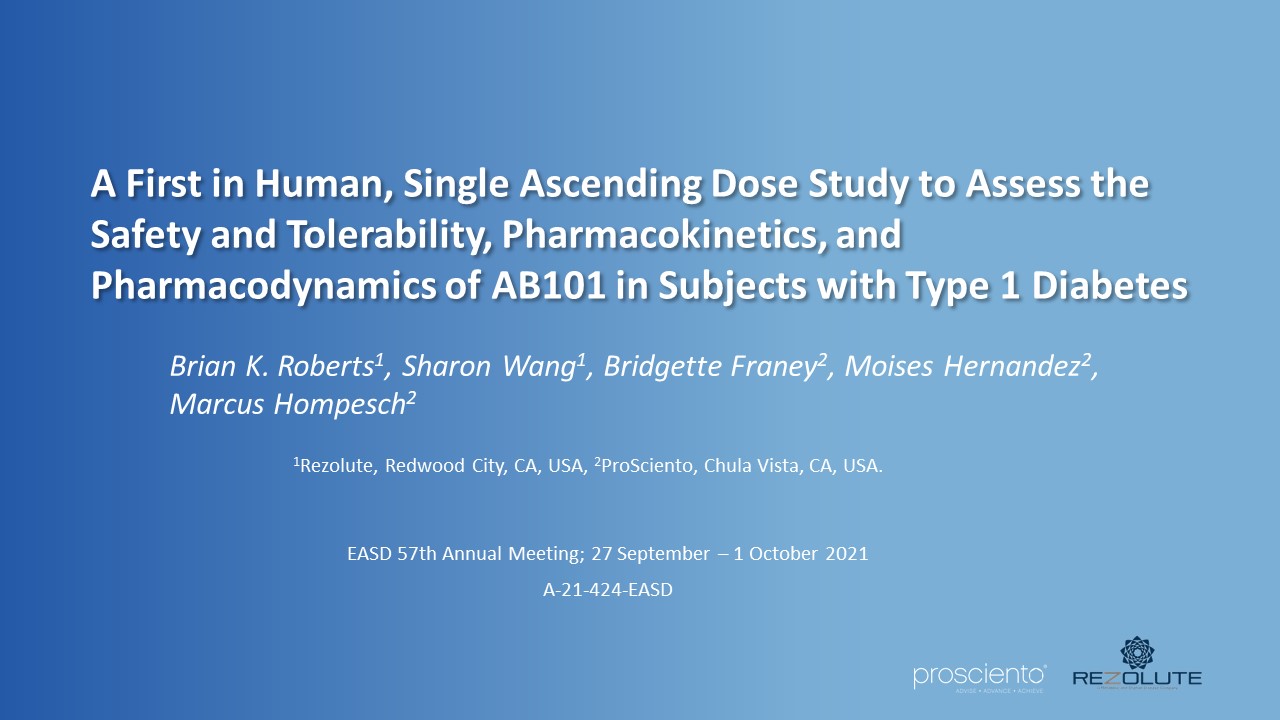About
Listen to an Overview of this Presentation
Background
Rezolute and ProSciento presented key findings from a clinical study on AB101, an ultra long-lasting basal insulin, at the 2021 European Association for the Study of Diabetes (EASD) meeting. This first in human study was designed to assess the safety, tolerability, pharmacokinetics (PK), and pharmacodynamics (PD) of single subcutaneous (SC) administration of AB101 in subjects with T1DM who were on background continuous SC insulin infusion (CSII).
AB101 is a slow release microsphere form of polyethylene glycol-human recombinant insulin (peginsulin) for potential use as an ultra long acting basal insulin in patients with diabetes mellitus. In pre-clinical animal studies, administration of AB101 resulted in slow onset, sustained, and peakless increases in insulin and corresponding glucose lowering for a week or more.
- This study utilized the euglycemic clamp technique, CSII, and continuous glucose monitoring (CGM).
- There were no serious adverse events (AEs) or discontinuations due to treatment emergent AEs, and no clinically significant changes in laboratory evaluations, ECGs, or vital signs.
- The PK profile showed a delayed onset of AB101 in humans compared to animals. The concentration-time profile demonstrated a dose-dependent increase in serum peginsulin concentrations beginning at Day 15 to Day 20 relative to dosing, with sustained insulin levels for a week or more. There was no evidence of initial or delayed sudden insulin release (burst).
- AB101 resulted in decreased glycemic variability by CGM.


